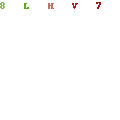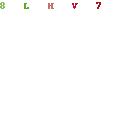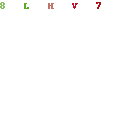RULES AND REGULATIONS OF THE QUESTION AND ANSWER SESSION
To be Announced by the Chairman:
"To derive more benefit for all present here today, in the limited time available, we would like the following guidelines or rules to be observed during the Question and Answer Session:
1. Questions asked should be on the topic only. Questions not relevant to the topic will not be entertained.
2. Kindly state your question briefly and to the point. This is a Question and Answer time and not a Lecture or a Debate time.
3. Only one question at a time may be asked. For your 2nd question you will have to go at the back of the row again, and await your 2nd chance for questioning.
4. 3 Mikes have been provided for the questions from the audience: 2 for the Gents next to the stage on the right and left sides, and 1 at the back for the Ladies. Please stand in a queue at one of the mikes if you wish to put a question to the speaker, and speak into the mike only when the mike is handed to you by the mike handling assistants.
5. We will allow one question on each of the mikes in clockwise rotation.
6. Written questions on slips of paper, which are available from our volunteers in the sides, would be given second preference after the open questions on the mikes are answered by the speaker.
7. In the interest of not having any time wasted on irrelevant issues, and to ensure a more educative and an interesting Question & Answer Session, our decision to allow or disallow irrelevant questions will be final.
8. In the interest of getting a proper and clear answer from the speaker, kindly state your name and profession before putting forth your question.
STRUCTURE AND CONTENT WHILE ANSWERING A QUESTION IN PUBLIC
I INTRODUCTION OF THE ANSWER:
1. While the question is being asked, pay careful attention to each and every word of the question.
2. Repeat the question in brief mentioning only the important points.
3. If a question contains two different questions or sub-questions, mention at the outset, that the brother has asked two questions or that the brother’s question contains two or three parts.
4. Advantages of repeating the questions are:
(i) It helps the audience to understand the question better.
(ii) If the speaker has misunderstood the question, the questioner can correct him.
(iii) During video recording, it enables the questions to be recorded clearly.
(iv) If you are not prepared with the answer, it gives you time to think and formulate the contents of the answer, and their sequence.
5. Advantages of repeating the questions are:
(i) Brother has asked a Good Question.
(ii) Brother has asked an Important Question.
(iii) Brother has asked a Relevant Question.
(iv) Brother has asked a Tricky Question.
(v) Brother has asked a Common Question.
(vi) Brother has asked an Unusual Question.
6. Mention the relevance of the question, if any, to the occasion of the talk, present situation, surrounding, etc.
7. If the questioner prolongs his question, after it is clear to you, by giving unnecessary details and background which are not required, then politely interrupt the questioner by saying:
(i) Brother, I have understood your question.
(ii) Brother, the question is clear to me since I am in the field of Da’wah.
8. If the questioner gives a short speech or makes several irrelevant comments without asking a question, then politely interrupt by saying:
(i) Brother, could you please pose your question?
(ii) Brother, could you please be precise and to the point?"
9. If the question is not related to the topic (unless it is an open question and answer session) comment by saying: "I am sorry brother, the question is not relevant to the topic under discussion but…"
(i) "…you are most welcome to have it clarified on Sunday morning at IRF during the open question and answer session (or refer him to an appropriate source)."
(ii) "…however you can refer to my video cassette on the topic… (or any other video cassette of another speaker) for the answer to your question."
10. If the question is on ‘fiqh’ or ‘masaail’ or if it is a controversial question, ask the questioner to go to a Maulana or an expert in that field. You may quote Al-Qur’an 16:43 or 21:7.
11. If the question is related to the topic, and you do not know the answer, reply in a humble manner by saying:
(i) "I am sorry, I do not know the answer, but Inshallah, I will refer and let you know."
(ii) Refer him to the appropriate person by saying, "Shaikh _____________ will do better justice in replying the question".
II BODY OF THE ANSWER:
Answer the question by covering all the following four aspects if possible or as many as possible.
1. Islamic viewpoint
(i) Quote with reference the relevant Qur’anic verse, if any.
(ii) Quote with reference the relevant authentic hadith, if any.
(iii) Commentary and explanation of the Qur’anic verse or hadith quoted.
(iv) View of an expert, scholar or any knowledgeable person in the Islamic field, related to the topic.
2. Comparative Religion
(i) Quote the portions of scriptures of other religions (e.g. Bible, Veda, Upanishad, Geeta, etc.) related to the answer.
(ii) Commentary and explanation of the verses of the religious scripture quoted.
(iii) View of an expert or a scholar of the respective religion, if beneficial.
3. Reason and Logic
(i) Explain the answer with the help of reason and logic.
(ii) Give logical examples to prove your point.
(iii) Give simple examples related to day to day living e.g. school life, household examples, etc.
(iv) Use universally accepted facts to prove your point e.g. 2 + 2 = 4, the world is spherical, etc.
(v) Give statistics to support the answer, mentioning its source.
(vi) Quote articles to support your answer from reputed newspapers, magazines, etc.
(vii) Give references from authentic and famous books to support your answer.
(viii) Quote scholars, historians and experts in the field, related to the answer.
4. Scientific Viewpoint
(i) Mention established scientific facts, if any, to support your answer.
(ii) Give medical reasons, if any, to support your answer.
(iii) Give references from medical journals and books, if any, to support your answer.
(iv) Quote the viewpoint of any Scientist or Doctor, if any, to support your answer.
III CONCLUSION
Use any one or two of the following:
(i) Give a hitting example.
(ii) Ask a rhetoric question.
(iii) Give a quotation with reference of a relevant Qur’anic verse.
(iv) The last sentence should be emphatic: hitting with a punch line.
(v) Whenever there is room for discussion in the answer, or if the contents of the answer are not clearly mentioned in the Qur’an or in authentic Ahadith, then conclude your answer by saying, "Wallaahu-A’alam" (And Allah knows best).
IV IMPORTANT POINTS WHILE ANSWERING:
1. Follow all the important points of the structure and content of Islamic lectures.
2. The answer should not contradict any of your other answers.
3. If the question contains an argument or example to prove the Islamic viewpoint wrong, then either (i) Agree with the questioner’s reasoning of the argument or example and give another example to turn the table over and use the same reasoning to prove the Islamic view point, or (ii) Prove the questioner’s reasoning of the argument or example wrong by giving another argument or example.
4. Do not let the question and answer session run into a discussion or a debate. If required, ask the questioner to meet you after the programme.
5. Non-Muslims should be given preference to ask questions.
6. Notes should never be carried for a question and answer session.
7. The same Qur’anic verse can be utilized in answering several questions.
8. Follow the guidelines of Surah Nahl chapter 16 verse 125 while answering the questions.
V PREPARATION FOR QUESTION AND ANSWER SESSION:
1. View all the video cassettes of various Islamic orators dealing with the topic on which you have to speak. (Talk plus question and answer session).
2. Prepare a list of all the possible questions that can be asked on the topic, including the questions asked to various other speakers while they gave the talk on the same topic and categorise the list into very important, important and other questions.
3. Prepare the answer to each and every question.
4. Memorise all the answers.
5. Portions of your talks on other topics can be utilized in answers, if relevant.
6. Memorisation of talks on various topics along with the answers helps you in handling a variety of questions.
7. Note all the verses of the Qur’an dealing with the topic.
8. Note as many authentic hadith as possible dealing with the topic.
To be Announced by the Chairman:
"To derive more benefit for all present here today, in the limited time available, we would like the following guidelines or rules to be observed during the Question and Answer Session:
1. Questions asked should be on the topic only. Questions not relevant to the topic will not be entertained.
2. Kindly state your question briefly and to the point. This is a Question and Answer time and not a Lecture or a Debate time.
3. Only one question at a time may be asked. For your 2nd question you will have to go at the back of the row again, and await your 2nd chance for questioning.
4. 3 Mikes have been provided for the questions from the audience: 2 for the Gents next to the stage on the right and left sides, and 1 at the back for the Ladies. Please stand in a queue at one of the mikes if you wish to put a question to the speaker, and speak into the mike only when the mike is handed to you by the mike handling assistants.
5. We will allow one question on each of the mikes in clockwise rotation.
6. Written questions on slips of paper, which are available from our volunteers in the sides, would be given second preference after the open questions on the mikes are answered by the speaker.
7. In the interest of not having any time wasted on irrelevant issues, and to ensure a more educative and an interesting Question & Answer Session, our decision to allow or disallow irrelevant questions will be final.
8. In the interest of getting a proper and clear answer from the speaker, kindly state your name and profession before putting forth your question.
STRUCTURE AND CONTENT WHILE ANSWERING A QUESTION IN PUBLIC
I INTRODUCTION OF THE ANSWER:
1. While the question is being asked, pay careful attention to each and every word of the question.
2. Repeat the question in brief mentioning only the important points.
3. If a question contains two different questions or sub-questions, mention at the outset, that the brother has asked two questions or that the brother’s question contains two or three parts.
4. Advantages of repeating the questions are:
(i) It helps the audience to understand the question better.
(ii) If the speaker has misunderstood the question, the questioner can correct him.
(iii) During video recording, it enables the questions to be recorded clearly.
(iv) If you are not prepared with the answer, it gives you time to think and formulate the contents of the answer, and their sequence.
5. Advantages of repeating the questions are:
(i) Brother has asked a Good Question.
(ii) Brother has asked an Important Question.
(iii) Brother has asked a Relevant Question.
(iv) Brother has asked a Tricky Question.
(v) Brother has asked a Common Question.
(vi) Brother has asked an Unusual Question.
6. Mention the relevance of the question, if any, to the occasion of the talk, present situation, surrounding, etc.
7. If the questioner prolongs his question, after it is clear to you, by giving unnecessary details and background which are not required, then politely interrupt the questioner by saying:
(i) Brother, I have understood your question.
(ii) Brother, the question is clear to me since I am in the field of Da’wah.
8. If the questioner gives a short speech or makes several irrelevant comments without asking a question, then politely interrupt by saying:
(i) Brother, could you please pose your question?
(ii) Brother, could you please be precise and to the point?"
9. If the question is not related to the topic (unless it is an open question and answer session) comment by saying: "I am sorry brother, the question is not relevant to the topic under discussion but…"
(i) "…you are most welcome to have it clarified on Sunday morning at IRF during the open question and answer session (or refer him to an appropriate source)."
(ii) "…however you can refer to my video cassette on the topic… (or any other video cassette of another speaker) for the answer to your question."
10. If the question is on ‘fiqh’ or ‘masaail’ or if it is a controversial question, ask the questioner to go to a Maulana or an expert in that field. You may quote Al-Qur’an 16:43 or 21:7.
11. If the question is related to the topic, and you do not know the answer, reply in a humble manner by saying:
(i) "I am sorry, I do not know the answer, but Inshallah, I will refer and let you know."
(ii) Refer him to the appropriate person by saying, "Shaikh _____________ will do better justice in replying the question".
II BODY OF THE ANSWER:
Answer the question by covering all the following four aspects if possible or as many as possible.
1. Islamic viewpoint
(i) Quote with reference the relevant Qur’anic verse, if any.
(ii) Quote with reference the relevant authentic hadith, if any.
(iii) Commentary and explanation of the Qur’anic verse or hadith quoted.
(iv) View of an expert, scholar or any knowledgeable person in the Islamic field, related to the topic.
2. Comparative Religion
(i) Quote the portions of scriptures of other religions (e.g. Bible, Veda, Upanishad, Geeta, etc.) related to the answer.
(ii) Commentary and explanation of the verses of the religious scripture quoted.
(iii) View of an expert or a scholar of the respective religion, if beneficial.
3. Reason and Logic
(i) Explain the answer with the help of reason and logic.
(ii) Give logical examples to prove your point.
(iii) Give simple examples related to day to day living e.g. school life, household examples, etc.
(iv) Use universally accepted facts to prove your point e.g. 2 + 2 = 4, the world is spherical, etc.
(v) Give statistics to support the answer, mentioning its source.
(vi) Quote articles to support your answer from reputed newspapers, magazines, etc.
(vii) Give references from authentic and famous books to support your answer.
(viii) Quote scholars, historians and experts in the field, related to the answer.
4. Scientific Viewpoint
(i) Mention established scientific facts, if any, to support your answer.
(ii) Give medical reasons, if any, to support your answer.
(iii) Give references from medical journals and books, if any, to support your answer.
(iv) Quote the viewpoint of any Scientist or Doctor, if any, to support your answer.
III CONCLUSION
Use any one or two of the following:
(i) Give a hitting example.
(ii) Ask a rhetoric question.
(iii) Give a quotation with reference of a relevant Qur’anic verse.
(iv) The last sentence should be emphatic: hitting with a punch line.
(v) Whenever there is room for discussion in the answer, or if the contents of the answer are not clearly mentioned in the Qur’an or in authentic Ahadith, then conclude your answer by saying, "Wallaahu-A’alam" (And Allah knows best).
IV IMPORTANT POINTS WHILE ANSWERING:
1. Follow all the important points of the structure and content of Islamic lectures.
2. The answer should not contradict any of your other answers.
3. If the question contains an argument or example to prove the Islamic viewpoint wrong, then either (i) Agree with the questioner’s reasoning of the argument or example and give another example to turn the table over and use the same reasoning to prove the Islamic view point, or (ii) Prove the questioner’s reasoning of the argument or example wrong by giving another argument or example.
4. Do not let the question and answer session run into a discussion or a debate. If required, ask the questioner to meet you after the programme.
5. Non-Muslims should be given preference to ask questions.
6. Notes should never be carried for a question and answer session.
7. The same Qur’anic verse can be utilized in answering several questions.
8. Follow the guidelines of Surah Nahl chapter 16 verse 125 while answering the questions.
V PREPARATION FOR QUESTION AND ANSWER SESSION:
1. View all the video cassettes of various Islamic orators dealing with the topic on which you have to speak. (Talk plus question and answer session).
2. Prepare a list of all the possible questions that can be asked on the topic, including the questions asked to various other speakers while they gave the talk on the same topic and categorise the list into very important, important and other questions.
3. Prepare the answer to each and every question.
4. Memorise all the answers.
5. Portions of your talks on other topics can be utilized in answers, if relevant.
6. Memorisation of talks on various topics along with the answers helps you in handling a variety of questions.
7. Note all the verses of the Qur’an dealing with the topic.
8. Note as many authentic hadith as possible dealing with the topic.















No comments:
Post a Comment